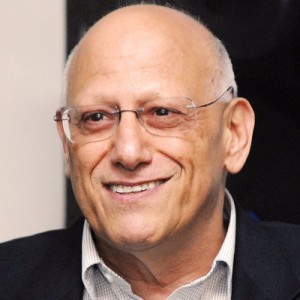Cities demands for policy-making rights
European cities are demanding more involvement in policy-making in regards to the settlement of refugees and migrants in order to adequately allow for an effective and individual response to the incoming influx of refugees, according a recently released Eurocities report.
Cities are primarily dealing with the harsh, unique realities of settling migrants and refugees into the community, and policy-making rights should be altered to reflect this difficulty, according to the report.

Professor Andrew Markus of Monash University
On both a regional and national level, the report surveyed 34 cities in 17 European Union states to find that they lack adequate contribution to policy and access to funding.
The report contends, “Cities must be able to determine their priorities and target groups, as they know exactly what is needed in terms of integration.”
Cities are more capable than national governments to respond to the refugee influx, as they possess the “right agile structure” to be able to coordinate and manage resources effectively, states the report.
The report highlights an inconsistency in policy-making between national countries and cities in Europe, emphasising a pattern that could easily reach Australia.
“Australia already has more local input into immigration programs”, Professor Andrew Markus of Monash University Australia told AMES Australia.
“The Commonwealth discusses with states the location of initial settlement of those entering under the Humanitarian program”, says Professor Markus.
“The majority of immigrants make their own decision where they will settle and if/when they will move; cities do not settle migrants, they settle themselves; given freedom of movement in a democratic country such as Australia I do not see how this could change”, Professor Markus states.
As opposed to the European continent, in Australia “the broader city does not have a single political voice or government so it is difficult to see what entity (other than a state government) would be speaking on behalf of the broader city”, Professor Peter McDonald of Australian National University continues.
“In Australia, each state has just one very large city (one million plus – except for Tasmania) and so there is a one-to-one relationship between states and their major city, that is, state governments speak on behalf on their one major city”, Professor McDonald claims.
“So, under present arrangements, I think it is inevitable that states do the planning – with a degree of reference to the local councils where refugees are likely to end up living at least in the short-term”, states Professor McDonald.
While, in this view, Australian cities have some degree of input, this alters when discussing refugee and migrant labour demands.
In Australia, according to Professor Markus, “there are state, regional and employer nominated components of the immigration program, but the Commonwealth evaluates labour demand when determining the size of the annual immigration program”.
The report further maintains that cities need dedicated financial support in order to facilitate migrants much needed efficient access to the labour market.
Professor McDonald contends in Australia there is “no doubt that the longer-term future is a future of cities as all forms of primary production become corpoatised, thus, there is a logic to cities having a voice in the political debate”, emphasising the need for a stronger influence from cities.
The Eurocities report reflects this challenge of how cities integrate migrants and refugees into the labour market, as well as specific issues such as housing, education and general public opinion.
National governments are shutting their borders, despite various cities within maintaining a welcoming attitude to refugees. Poland began to express its desire to close its borders to refugees, while the major and citizens of Gdansk were still actively working to settle new arrivals.
Thomas Jezequel, the report’s author claims “you see that in Rotterdam, Berlin, Amsterdam … but you have also seen it in cities in Poland in a very different context, where you have mayors saying we’re open, we’re a city of solidarity.”
Cities, both internationally and in Australia, deserve a larger right to policy-making and funding, to adequate reflex each cities unique situation and abilities, concludes the report.
Sarah Gilmour
AMES Australia Staff Writer












